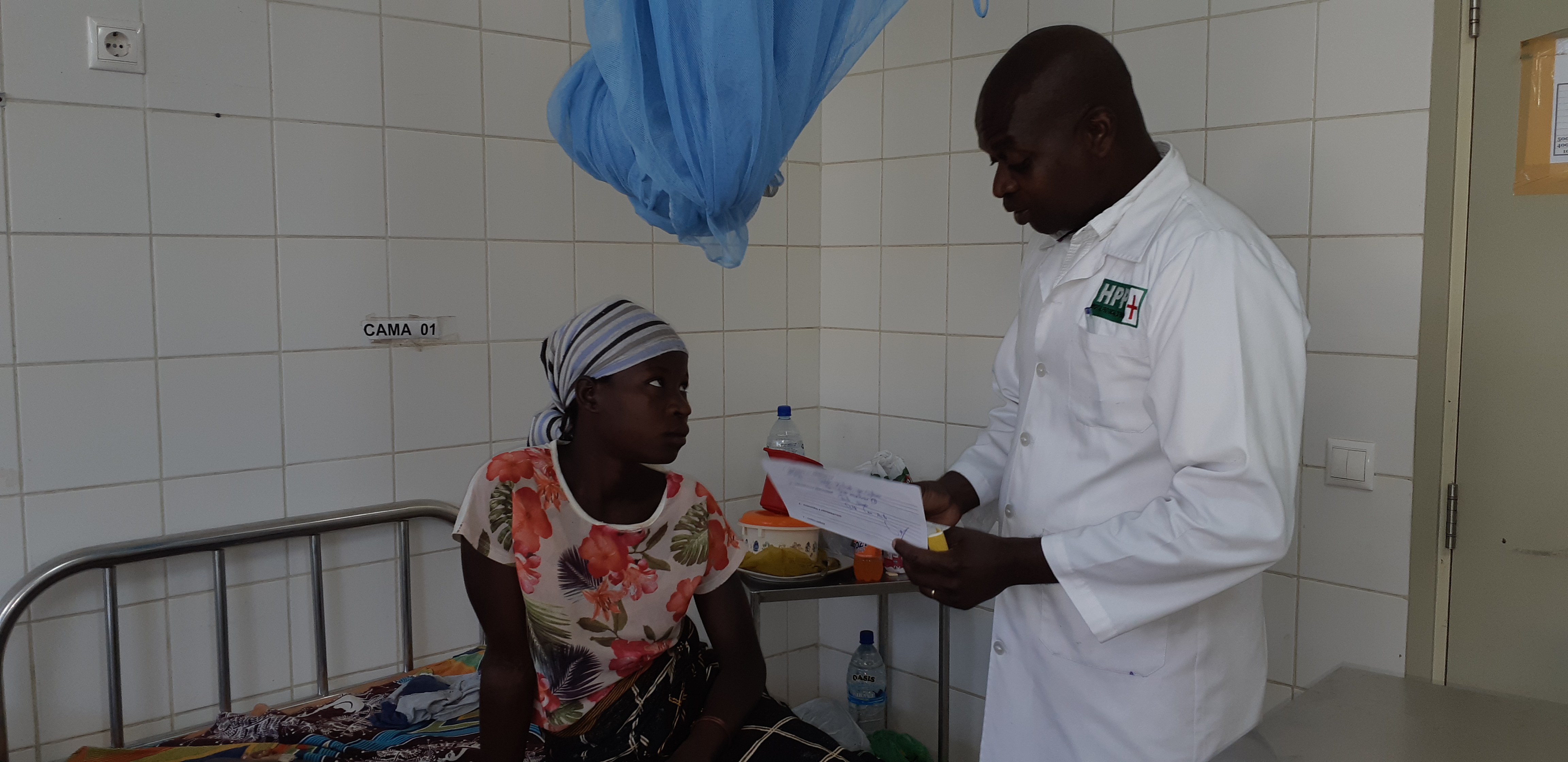On 23 May, the International Day to End Obstetric Fistula draws attention to a condition affecting women worldwide, especially in developing countries. In Mozambique, it is estimated that more than 2,500 new cases will emerge in 2019. UNFPA works to prevent fistula and maternal and neonatal mortality. Child marriage and lack of primary health care are the main causes.

"This is caused by a prolonged and unattended delivery, a obstructed delivery, where the baby can not be born because the head is larger than the birth canal." Two days later, this process causes complications. urinary incontinence, fecal incontinence, and everything goes out through the vaginal canal, " Dr. Alberto Alforma, who works at the Provincial Hospital of Pemba, Cabo Delgado, explained to UNFPA Mozambique.
Muastaha Amadou, 43, had a fistula after her 8th pregnancy. Two years ago, during labor, she was in a community without access to a health center. After two days trying to give birth to her son, she went to the hospital, but it was not possible to save the baby. A year after suffering from fistula, she was operated by Dr. Alforma.
Muastaha's brothers and her whole family supported her and helped her to receive treatment. In 2017, she started her life again.
"My life was very difficult. I was not able to walk, sleep, wander around. The feces did not stop coming out. If I were in this condition until today, I would not have survived", Muastaha said. "
The commitment of the doctor who has operated more than 550 cases of fistula, comes from personal experience. Dr. Alforma lost his mother when he was 2 years old. Later in adolescence, he came to the conclusion that his mother had suffered sepsis and this was something that inspired him as a surgeon.
"If it were possible in a country like ours, with this serious condition, I would like very much to have a surgical center for fistula treatment, if it could be created, I would volunteer. I would leave other things for other colleagues to operate because to operate fistula you need love. You need love".

